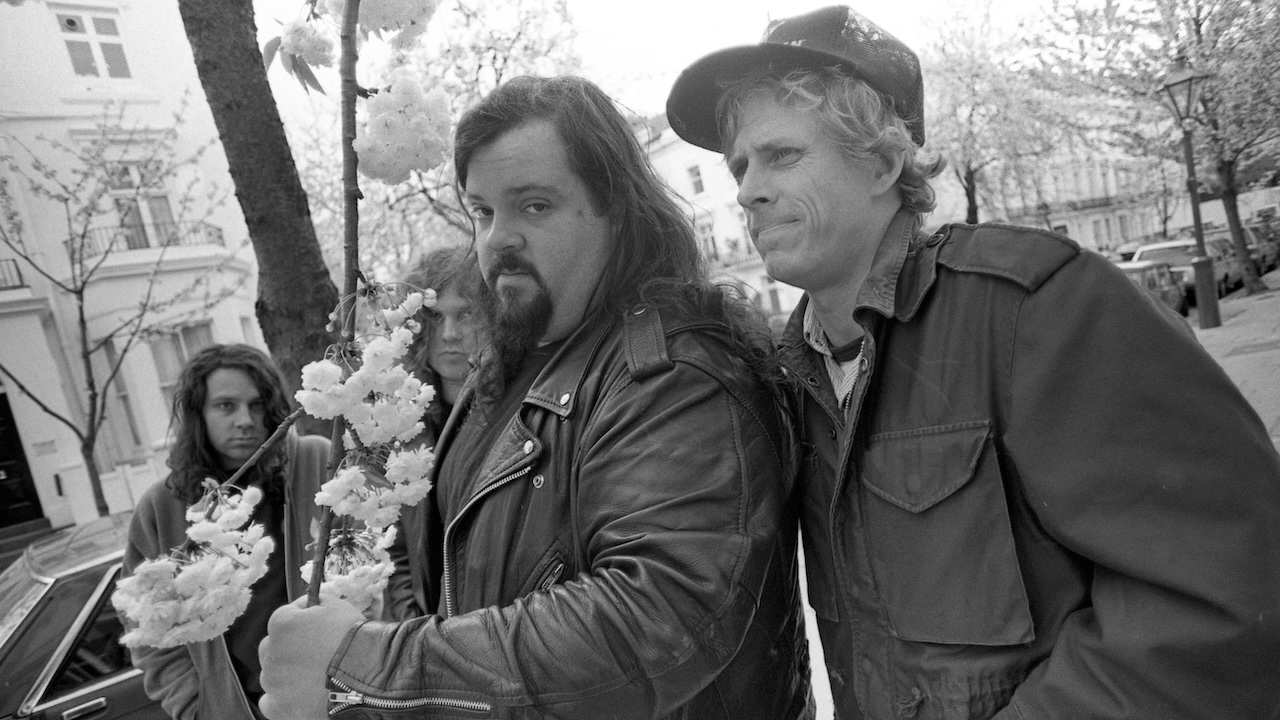First Time I Met The Blues: Eric Johnson
Guitar master Eric Johnson on growing up in Austin, Texas, discovering the early bluesmen and jamming with Johnny Winter as a 15-year-old.

Eric Johnson is widely recognised as one of the most skilled and imaginative guitar players in the world. From his 1990 breakthrough record, Ah Via Musicom, to his just released album Europe Live, he’s spent the best part of a quarter of
You started out playing the piano; what made you gravitate toward rock and blues?
I guess it was just being a kid and hearing The Ventures, The Beatles, the Rolling Stones and then The Yardbirds, Cream and Hendrix. It was so enticing and had such a cool sound. It was a whole new thing that had never been heard before, all that crazy feedback and fuzz guitar. It all came from 1950s blues records, but then it got all turned upside-down by this crazy energy. It was just irresistible. I was about 11 years old when I started playing guitar. I kept taking piano lessons, but gradually I just got more into the guitar.
Were you listening to records to figure out what was going on? What was your early learning process?
Well, I took guitar lessons from a gentleman named Wayne Wood in Austin and then I just listened to records trying to pick out guitar parts.
Who were some of the earlier blues artists that made you go, ‘Oh, that’s where that came from?’
I was over at a friend’s house one day, I must have been 13 years old, and he said, ‘Have you heard of these guys?’ And he started pulling out Albert King and Freddie King. I’d heard of B.B. King but wasn’t super familiar with it so when he started pulling out all these records it was amazing. You start hearing all the licks the other guys had gotten their whole thing from.
Sign up below to get the latest from Classic Rock, plus exclusive special offers, direct to your inbox!
What were some of those earlier important blues records for you?
One of the first ones I heard was B.B. King’s Live At The Regal. Then of course you have the era with 3 O’Clock Blues and Sweet Little Angel. That early stuff was killer.
How did you come upon the Fender Stratocaster?
I guess it was through Jimi Hendrix. I’d seen pictures of Buddy Guy playing one early on, but it was mainly by seeing Hendrix play one. I went, ‘Oh, I gotta check this out.’ I remember the first time I tried to play one, it’s just a very difficult guitar to play, especially in those days. The ones they made then were not as player-friendly as they are now. I was used to a Gibson guitar and was kind of shocked at how they were just totally different.
Can you describe what it was like to grow up in Austin, Texas in that vibrant music scene?
It was wonderful because there were so many great players. I used to see Johnny Richardson, John Stahaley and Jim Minks; there were some really fine guitar players that played around Austin when I was a kid that I could go and learn from. They had great groups doing early blues-rock.
In your song Austin on Europe Live, you sing, ‘I would go to the Jade Room/On a Tuesday eve/I was only 14/Kept my age up my sleeve.’ Is that a snapshot from your own life?
Yeah, that was from a group called Georgetown Medical Band, which was Johnny Richardson’s band. They would play every Tuesday night at the Jade Room and do all these cool covers of early Stevie Wonder and The Yardbirds. It was a cool gig to go to because it was a dark club and there weren’t a lot of people there on weekdays so they let me sneak in and sit in the back and listen to ’em.
You also jammed with Johnny Winter around then?
Yeah, I was playing with this group Mariani when I was about 15 and the record company that we were working with at the time had actually recorded Johnny’s first record that was sold to Columbia. So he brought Johnny over one night and we got to hang out a bit.
Were you able to learn any slide licks off of him?
I did from his records for sure. I also used to go and listen to him at a club called the Vulcan Gas Company. For fifty cents you could go hear him play before he became really well known. He’d play this Fender Mustang through these two Twin Reverb [amplifiers] and just tore it up.
How does the blues continue to influence you?
Well it’s in the technique, the inflection and the attitude. It’s playing with soul. It’s the way you approach the playing of the strings. No matter what style of guitar I play or pursue, some of that blues technique will always be there because to me, it’s the fundamental way of learning how to play the instrument.
Europe Live is out now on Provogue Records.
